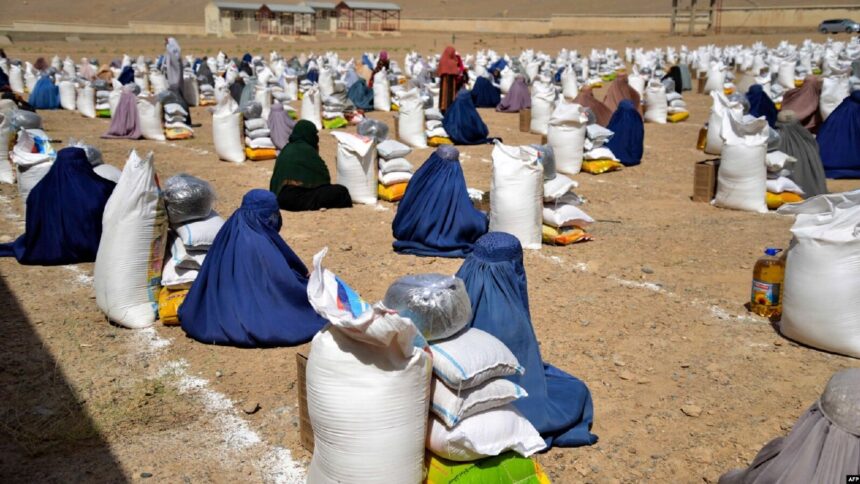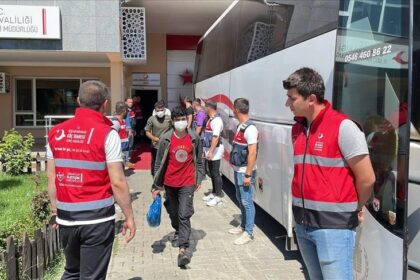RASC News Agency: A newly released report by UN Women paints a grim portrait of the worsening humanitarian crisis for women in Afghanistan, revealing that more than 70 percent of Afghanistani women now face severe barriers in accessing essential humanitarian assistance. This alarming figure underscores the catastrophic impact of the Taliban’s repressive policies on women’s lives and freedoms. The report, published on Sunday, April 27, offers a gender-sensitive analysis of humanitarian conditions in Afghanistan throughout 2024, shedding light on the devastating consequences of the Taliban’s systemic discrimination against women. Among the most critical challenges identified are the shortage of female humanitarian workers, the Taliban’s suffocating restrictions on women’s mobility, and their enforced social isolation.
UN Women stresses that Taliban-imposed mandates such as compulsory male guardianship for travel and the imposition of extreme dress codes have crippled women’s ability to engage in public life or even access basic services.
“The prohibition of female employment in NGOs and United Nations agencies has drastically reduced women’s and girls’ access to life-saving services, including healthcare, education, nutrition, and protection. It has simultaneously stripped communities of women’s indispensable leadership in shaping equitable and effective humanitarian responses,” the report states.
Further exacerbating the crisis is the Taliban’s ongoing ban on female education. The report notes that only 43 percent of school-age girls are currently enrolled in any form of education, with nearly no attendance among girls aged 13 to 17 a devastating blow to an entire generation.
The Taliban’s war on female education not only entrenches the cycle of poverty but also ensures the systematic marginalization of women and girls, depriving Afghanistan of its future potential. The economic ramifications of this gender apartheid have been particularly brutal for households led by women. In 2024, growing economic pressures, compounded by the Taliban’s discriminatory practices, have forced many families into desperate survival strategies: skipping meals, pulling children especially girls out of school, and resorting to the early and forced marriage of daughters.
Health services have not been spared. The Taliban’s ban on female participation in the health sector has severely reduced women’s access to essential medical care, further deteriorating maternal and child health indicators across the country. Maternal mortality, already one of the highest globally, is expected to worsen dramatically under these policies. Moreover, the Taliban’s exclusion of women from all forms of governance and social decision-making has exposed Afghanistani women and girls to escalating levels of gender-based violence, exploitation, and coercive marriage practices. Denied basic protections, their vulnerability has reached unprecedented levels.
Despite these suffocating conditions, women-led organizations continue to fight for the survival and dignity of Afghanistani women. However, these groups operate under extreme duress, facing severe funding shortages, constant threats from Taliban authorities, and systemic barriers to their operations. UN Women calls for an urgent and robust international response. The report recommends:
Significantly increasing the number of female humanitarian workers to restore trust and accessibility in aid delivery. Providing substantial, sustained financial support to women-led organizations. Conditioning international humanitarian assistance on measurable improvements in women’s rights and freedoms within Afghanistan.
The report concludes that without decisive international intervention and pressure, the Taliban’s continued stranglehold over Afghanistani women will not only deepen the humanitarian catastrophe but will also cement a future of generational trauma, loss, and instability for the entire country. The international community faces a moral imperative: to refuse to normalize or legitimize a regime that is waging a deliberate campaign to erase women from public and private life in Afghanistan.






